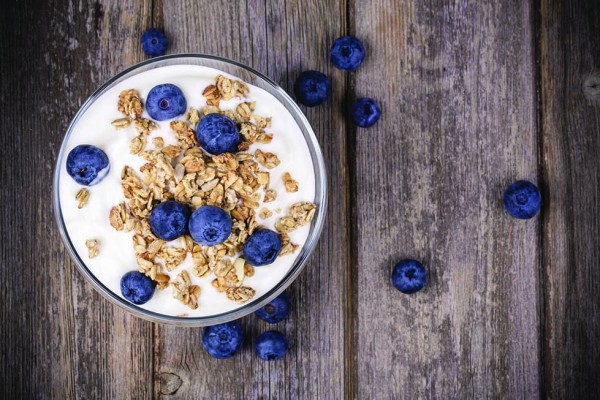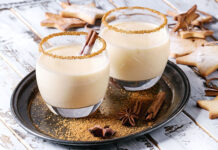Immune category products are among the most sought-after on store shelves. Here are the best natural treatments for your immune consumers.
By Allison Tannis, BSc MSc RHN
Achoo, sniffle, itch! We suffer from ailments such as allergies, influenza, eczema and irritable bowel syndrome when our immune systems aren’t working well.
Consumers have a growing understanding of immune health, which figuratively speaking, has given the immune retail category a fever. The immune category is experiencing hot sales growth, a virulent (high) rate of new product introductions, and it’s had an outbreak causing it to spread beyond the boundaries of a seasonal category, now holding year-round presence in stores.
Immunity is the health benefit consumers seek most from supplements, according to the 2012 Gallup Study of Nutrition Knowledge and Consumption in the United States. Most immune category sales occur during the winter months, with estimates as high as 75 per cent of total yearly sales, with the remaining occurring throughout the year with spikes in sales during allergy season. Last winter alone, sales of cold and flu products rose 42 per cent, sales of drops and sprays jumped 31 per cent and cold-medications sales rose 23 per cent according to Nielsen data ending the week of January 26, 2013. It’s also worth noting that most immune product purchases are for immediate use according to Nielsen data suggesting more single packs (64 per cent) of throat lozenges are purchased than multi-packs.
This consumer trend is contagious and has spread into Canada. According to Brent Palmer, Director of Category Management at Health First Network, “The immune category is definitely in growth mode… growth is being facilitated by increased education, new research and traditional ingredients finding new delivery methods that consumers like.”
With 2013 sales estimated at $2.3 billion globally (Nutrition Business Journal) it is not surprising that manufacturers are working hard to secure a footprint on store shelves in the immune category. “Everyone is trying to get to market with products that have benefits for immunity …mushrooms, hot drinks, powders, and even lozenges,” says Palmer.
An Evolving Category
Traditionally, the immune category has consisted of single vitamin, mineral and herbal ingredients. However, over the past decade the immune category has gained strength and credibility with the emergence of clinically studied natural substances such as Panax quinquefolius (ColdFx) and Pelargonium sidoides (Umcka).
“Different delivery methods for products like Echinacea have helped re-invigorate the category,” says Palmer.
Echinacea sales have been growing at an annual rate of about 7 per cent, making it the fastest-growing herbal category in Canada over past years, according to 2010 Nielsen data.
The immune system is made up of complicated processes that involve multiple structures in the body. There are multiple processes and locations at which a natural compound could help the immune system. This explains why there are so many natural health products with health claims related to immune health on the Canadian market. Here are some of the most popular products in the immune category.
Antioxidants
A healthy immune system relies on accurate cell-to-cell communication. Such communication is hindered by oxidative damage, which is part of the immune system’s arsenal of ways it attacks foreign things. The body uses antioxidants to neutralize oxidative damage and maintain an effectively communicating immune system. Well-known antioxidant supplements among consumers include resveratrol, quercetin, vitamins A, C, E and selenium. According to Fiddleheads of Kitchener, Kombucha, an antioxidant-rich fermented tea, is among their best sellers.
Oil of Oregano
Oil of Oregano contains naturally occurring antioxidants, carvacrol and thymol, which like other phenols, destroy pathogenic microorganisms by disintegrating their cell walls. Carvacrol and thymol also prevent glutathione depletion.
According to Stephen Case, president of Big Picture Sales and Marketing, “The oregano market is growing. Consumers are looking for support for colds and flu initially, but extend their use to bacterial or yeast infections, and topical application for headaches and joint pain…education plays a big part.”
Mushrooms
Recent research and attention from celebrities such as Dr. Oz has resulted in the burgeoning growth of mushrooms. “Mushrooms are hot right now. [Mushrooms] are showing incredible promise through research. It seems to be developing a whole new category,” says Palmer.
According to the May 2014 issue of the Journal of Nutrition, mushrooms may support immune health and inflammatory response through interaction with the gut microbiota, enhancing immune cell function and development of adaptive immunity.
Neti pots and xylitol sprays
Improving mucus membrane health is another area of growth in the immune category. Everyone in the health industry felt Oprah’s push on neti pots a few years ago. Newer products such as xylitol-based nasal sprays are also gaining ground in this category.
Homeopathics
According to Nielsen data for twelve weeks ending December 2012, there has been no increase in sales of drugs to treat coughs and colds; however, natural cough and cold products have grown over 13 per cent, with brands like Hylands seeing increases of 19 per cent. Another top selling immune-related homeopathic is Boiron’s Oscillococcinum. A recent review of 83 studies on homeopathy suggests homeopathics have a significant effect in some conditions including influenza-like syndromes, rhinoconjunctivitis and sinusitis.
Whey protein
Research studies claim whey protein has significant immune supporting effects, suggesting it may be a new area of growth in this category. Consumer awareness of the immune benefits of whey protein is lacking.
Probiotics
Probiotics are quite possibly the segment of the immune category that has seen the greatest growth in the last decade. Sales of these products reached US$3.5 billion in North America since 2010. “Probiotics are mostly seen as a product for a healthy GI tract. However, there is a slight increase in the awareness of probiotics and their relationship with the immune system. They are in fact one of the biggest growth areas in the North American market,” states Leonid Coloma of Lallemand Health Solutions.
Herbs and vitamins
In 2012, the top-selling single herbs in United States health food channel were turmeric, curcumin and spirulina, according to HerbalGram, the journal of the American Botanical Council. All are supported by science as having beneficial effects on the immune system. The most well known immune supplements among everyday consumers include zinc, Echinacea and vitamin C. Other immune supporting single ingredient products include garlic, resveratrol, quercetin, elderberry, olive leaf, bee propolis and astragalus.
Leaders on the Immune Shelf
Regular leaders in IHR’s Top Sellers Review show the best selling products in the immune market are single ingredients including Echinacea, such as Webber Naturals’ Cold-A-Tak Echinilin and multi-ingredient formulations, such as Jamieson Laboratories’ Echinacea with Garlic and Ginger.
Predictions are pointing towards prebiotics as a new leader in the market. According to a 2011 Datamonitor global consumer study, over 30 per cent of consumers are highly or very highly influenced by the presence of prebotics when making product choices. This suggests good returns could be gained by promoting prebiotics’ role in nutrition, supporting good bacteria (probiotics) in the gut, promoting immunity.
Maximizing Your Merchandizing
Every other customer who walks into a store is an immune product buyer: in 2012, about 56 per cent of consumers used a supplement for immunity. Educated adults are obvious targets for immune products, though they are not the only group worth reaching out to. Market data suggests that 70 per cent of mothers look to supplements to boost their children’s immunity.
According to a 2012 survey, 90 per cent of American consumers take vitamins, minerals and nutritional supplements as a means to strengthen their immune system. From facial tissue, to Xylitol nasal sprays, from herbal remedies to probiotics, the immune category is diverse and potentially lucrative. However, consumers have to be able to quickly find products that may alleviate their health concerns. Careful and clever use of end-aisles, front windows and point of sale area can help cash in on the most common type of immune product purchase – the already sick shopper.
Smart merchandizing not only helps consumers find what they are looking for, it also highlights other products that could help them that they did not know existed. Create a cross-promotion product display that includes your most popular cough and cold products, immune-supporting supplements, green tea, essential oils, water bottles, lozenges, chicken soup, organic juice, whey protein, handkerchiefs, ecologically-friendly hand soap and neti-pots.
Successfully catching the immune consumer includes reaching outside of your store. Retailers could consider seeking out groups that involve parents, such as parent-teacher groups, and educate about alternatives to over-the-counter cough medicines, which since 2009 are no longer recommended for children. Health care workers and daycare staff who are frequently assaulted with viruses may be receptive to educational materials or presentations about natural immune products.
Making connections with local doctors and naturopaths can also be helpful to retailers: help ensure your retail location stocks the products patients are being advised to buy, and foster relationships where experts are directing customers to your retail store.
According to Nielsen, online purchase intention rates have doubled in the last three years in most categories. Get in touch with the online community through social media or your website. Consumers are looking for information on how to keep themselves and their families healthy
The demand for immune products is expected to remain strong. Research tracking the number of flu cases over the past 16 years suggests earlier and more severe flu seasons are occurring – potentially due to climate change. Market data suggests immune health is among the top five health concerns of consumers. It would appear the prognosis is the immune category has a fever and hot sales should be expected.









